Introduction: Blogger (Blogspot) vs. WordPress at a Glance
What we compare
Blogger (aka Blogspot): Google’s free, hosted blogging platform
WordPress.org: free, self-hosted CMS software (not WordPress.com)
Who this is for: new bloggers, side‑project creators, small teams, and businesses wanting a free/low‑cost start
Quick take
Blogger = fastest free start, lowest effort, limited growth
WordPress.org = most flexible, not truly “free” due to hosting/domain costs, scales with you
If you want a fast, SEO‑ready blog without setup or plugins, consider a hosted blogging platform like BlogBowl alongside these options
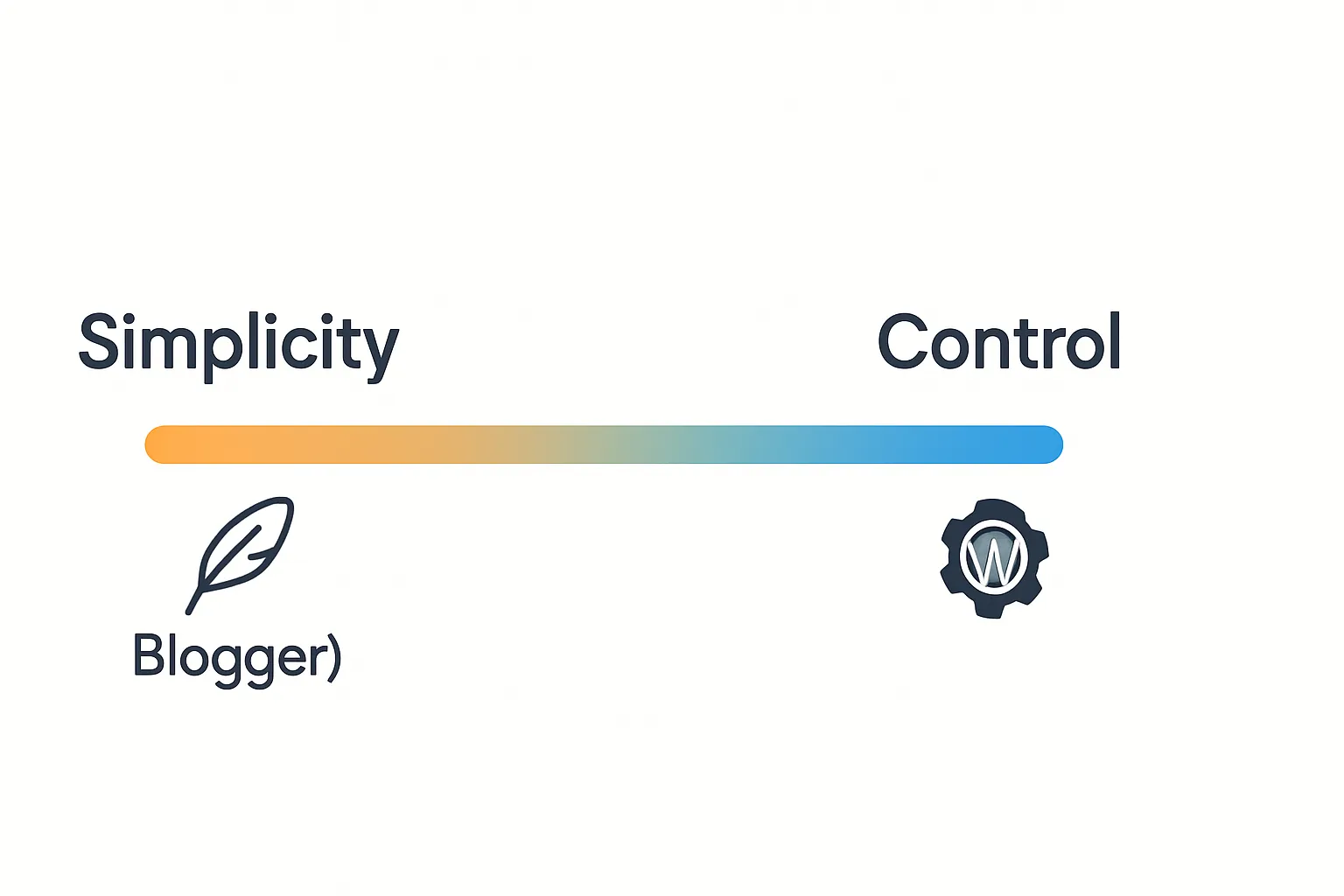
What matters most (criteria we’ll use)
Setup and ease of use (Blogger sign in/signup, Blogspot free hosting vs. WordPress hosting + install)
Design/customization
Writing/publishing experience
SEO & discoverability (Google + AI search readiness)
Monetization & growth
Ownership, portability & scalability
Security, support & reliability
Pricing and total cost of ownership
Fast facts
"WordPress is used by about 43.7% of all websites (2024)." - Source
Note on scope
We compare Blogger vs. self‑hosted WordPress.org. WordPress.com has a free plan but different limits.
At‑a‑glance comparison
Criteria | Blogger (Blogspot) | WordPress.org (self‑hosted) | Quick Winner |
|---|---|---|---|
Ease of use | Fastest start; Google account + Blogger sign in; Blogspot free hosting | Requires hosting, domain, install; moderate learning curve | Blogger |
Customization | Limited templates and gadgets | Thousands of themes/plugins; full design control | WordPress.org |
SEO | Basic SEO; good indexing, few levers | Advanced SEO plugins, schema, performance tuning | WordPress.org |
Monetization | AdSense built‑in; limited models | Ads, affiliates, memberships, eCommerce, custom funnels | WordPress.org |
Ownership | Hosted by Google; subject to platform limits | You own code/content; portable across hosts | WordPress.org |
Pricing | $0 with blogspot subdomain; minimal spend | Hosting + domain costs; scales with needs | Blogger (upfront) |
Setup and Ease of Use: From Sign Up to First Post
Blogger (Blogspot)
Blogger sign in/sign up with Google account
Instant Blogspot free hosting and subdomain (yourname.blogspot.com)
Pick a template, write, publish in minutes
Limits to know: fewer onboarding prompts for structure, templates look similar
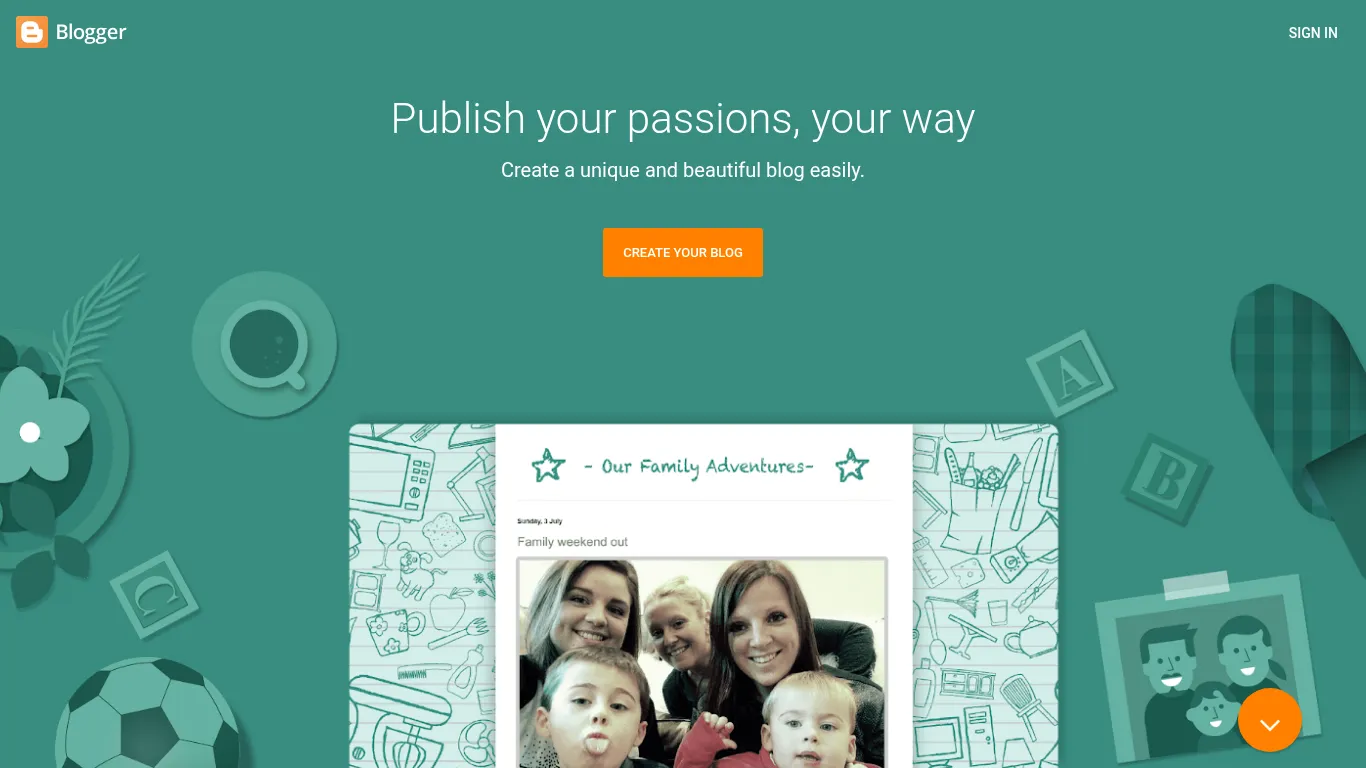
WordPress.org (self‑hosted)
What you need: a hosting account, domain, and a one‑click WordPress install
Typical time to first post: 30–60 minutes with a good host
First‑run checklist: set site title, permalinks, theme, essential plugins
Pros: full control, portable; Cons: a small learning curve and maintenance
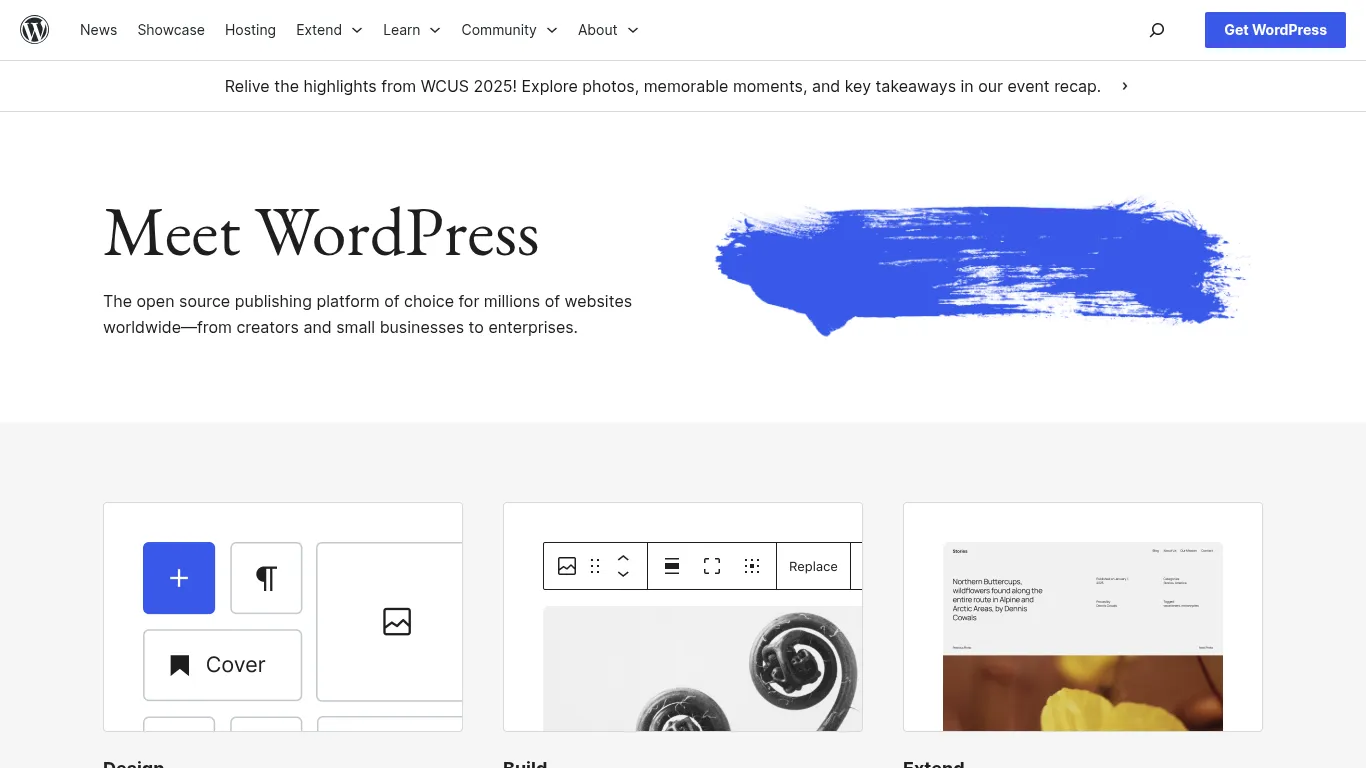
Tips to decide
If you need “today” with zero budget: Blogger
If you want long‑term growth or custom domain/brand from day one: WordPress.org
Design and Customization: How Unique Can Your Blog Look?
Blogger
Small set of built‑in themes; simple palette/layout tweaks
Deeper changes require editing HTML/CSS
Widgets/gadgets are limited and tightly scoped
WordPress.org
Thousands of free and premium themes; full site editing with block themes
Page builders and pattern libraries for drag‑and‑drop design
Extend anything with plugins (SEO, performance, galleries, memberships, ecommerce)
Developer freedom: custom post types, taxonomies, hooks, and APIs
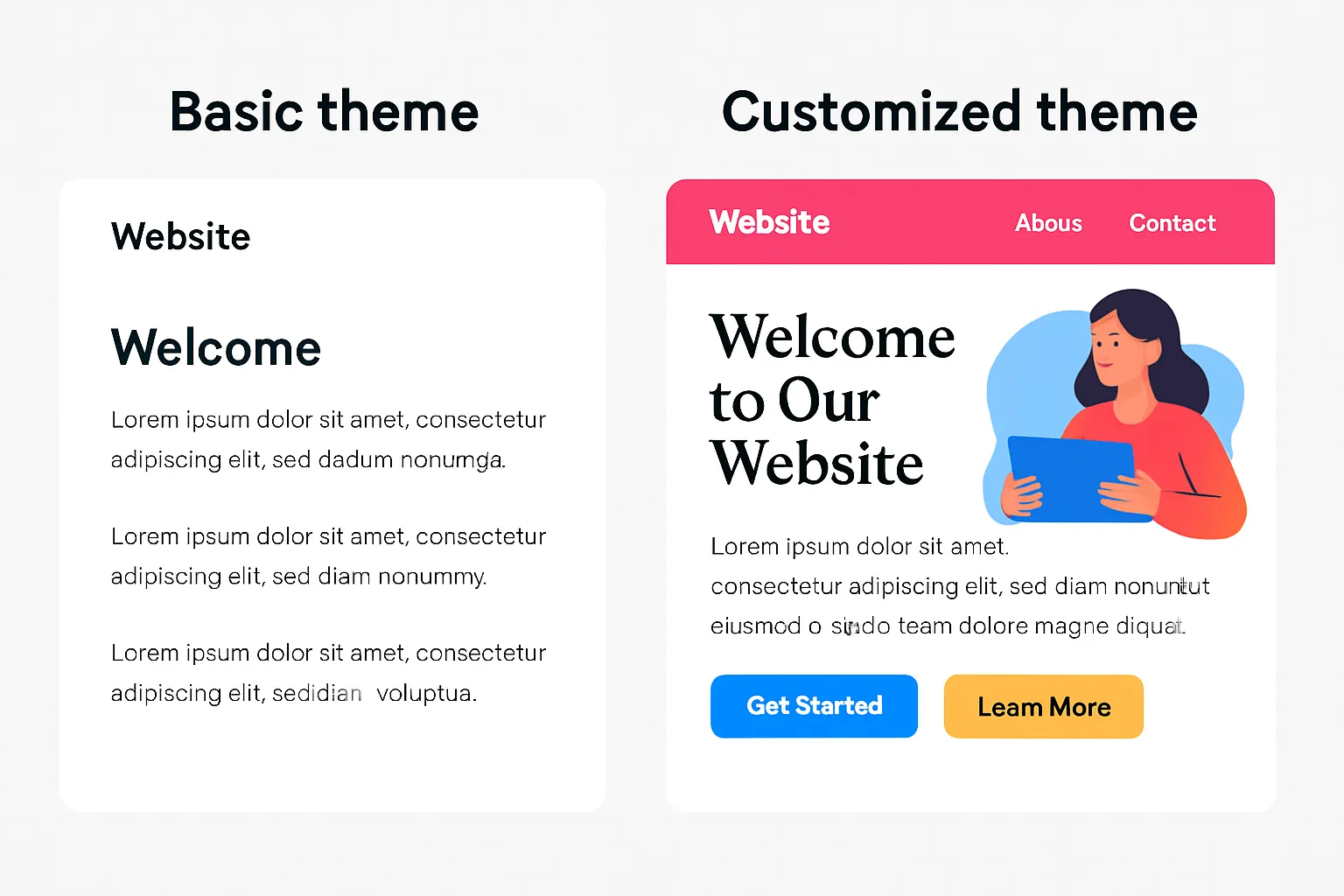
What readers will notice
Blogger sites can look “same‑y” fast; WordPress enables a distinctive, brand‑level look
Proof point
"The WordPress.org Plugin Directory lists 60,000+ free plugins." - Source
Writing & Publishing Experience: Editor, Media, and Workflow
Blogger
Classic WYSIWYG editor; fast for text‑first posts
Labels, basic media embedding, simple scheduling
Constraints: fewer layout options within a post; limited reusable components
WordPress.org
Block editor (Gutenberg): headings, images, galleries, columns, embeds (YouTube, X, Spotify, etc.) as blocks
Reusable blocks, patterns, and templates for consistent design
Editorial workflows via plugins (calendars, revisions, roles); easy media management
Bottom line
Blogger is great for straightforward, text‑led blogging
WordPress gives you modern layouts and repeatable content systems
SEO & Discoverability: Ranking on Google and AI Search
Blogger
Basic controls: custom meta, alt text, permalinks; auto sitemaps
Limited access to advanced technical SEO (schema markup, redirects, head/footer code)
WordPress.org
Full control over URLs, metadata, structured data, redirects, robots, sitemaps
SEO plugins (e.g., Yoast/Rank Math) to guide on‑page optimization and schema
Performance optimization via caching/CDN plugins; Core Web Vitals tuning
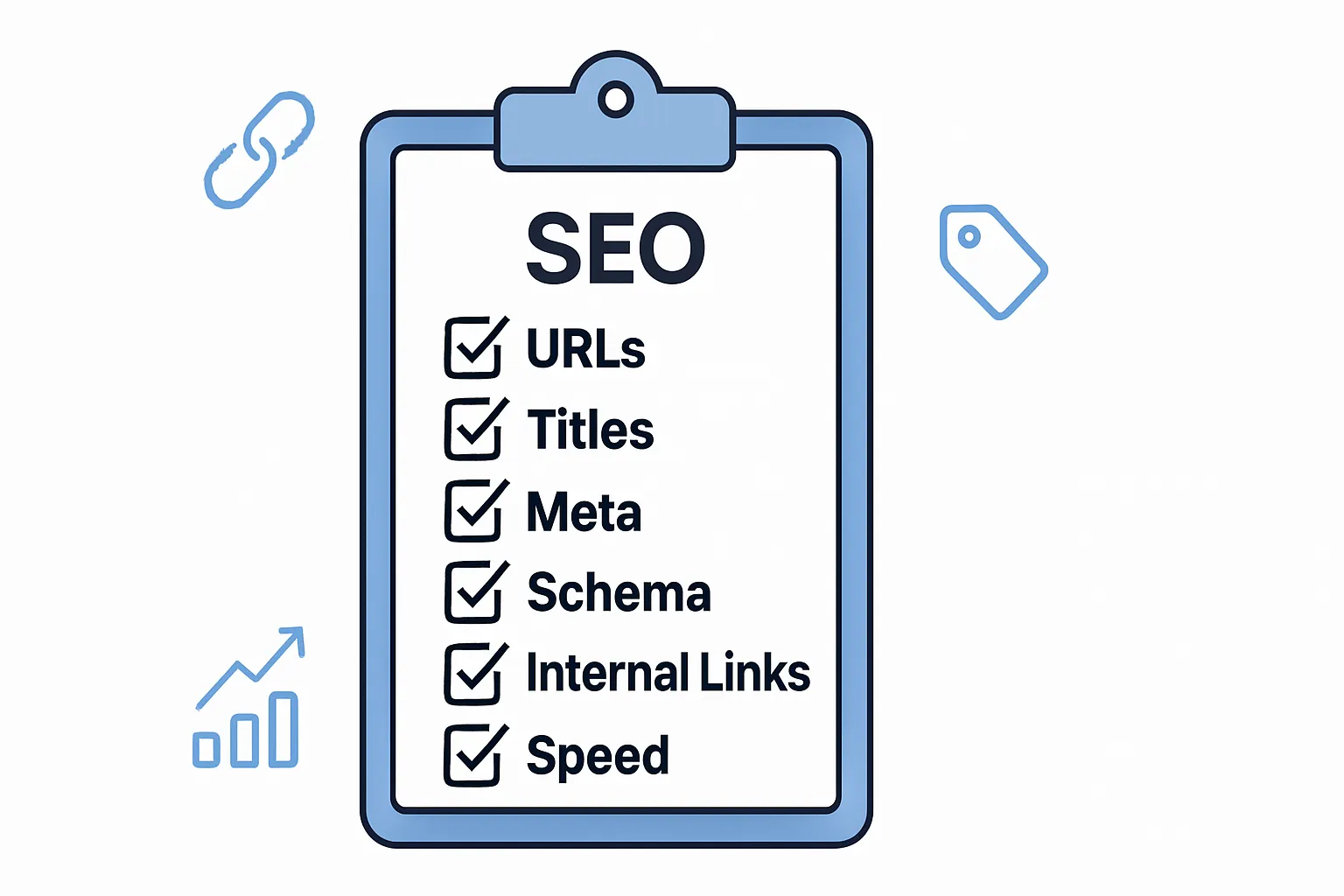
AI search readiness
Structured content (schema), internal linking, and topical clusters are easier to implement on WordPress with plugins and custom templates
Practical tip
If organic growth is a priority, WordPress provides deeper, future‑proof SEO levers
Monetization & Growth: From AdSense to Stores and Memberships
Blogger
Built‑in Google AdSense support
Manual affiliate links and sponsorships possible, but limited tooling
No native ecommerce or membership systems
WordPress.org
Ads via many networks and ad managers; flexible placements
Affiliate tools, link cloakers, and analytics integrations
Ecommerce with WooCommerce; sell courses, memberships, digital products
Email/newsletter integrations, lead capture, marketing automation
Growth levers to consider
Content hubs, landing pages, conversion widgets, and SEO at scale are simpler on WordPress
Platform | Ads | Affiliates | Memberships | Ecommerce | Typical add‑on costs |
|---|---|---|---|---|---|
Blogger (Blogspot) | Built‑in AdSense; simple placements | Manual links in posts; basic tracking | None (no native system) | None (no native store) | Blogspot free hosting ($0); optional custom domain ~$10–$20/yr |
WordPress.org (self‑hosted) | Multiple ad networks/managers; custom placements | Full suite of affiliate plugins, link cloakers, analytics | Membership plugins, paywalls, subscriptions | WooCommerce + extensions; sell digital/physical | Hosting ~$3–$15/mo; domain ~$10–$20/yr; optional premium plugins/themes varies |
Ownership, Portability & Scalability: Who’s Really in Control?
Blogger
You own your content, but Google owns the platform
Risk: policy changes or product deprecation
Export available, but migration can be messy (URLs, SEO equity)
WordPress.org
You own your site, database, and files; choose any host
Easy to back up, clone, and migrate; granular control over URLs to protect SEO
Scales from single blog to multi‑site, multi‑author, headless setups
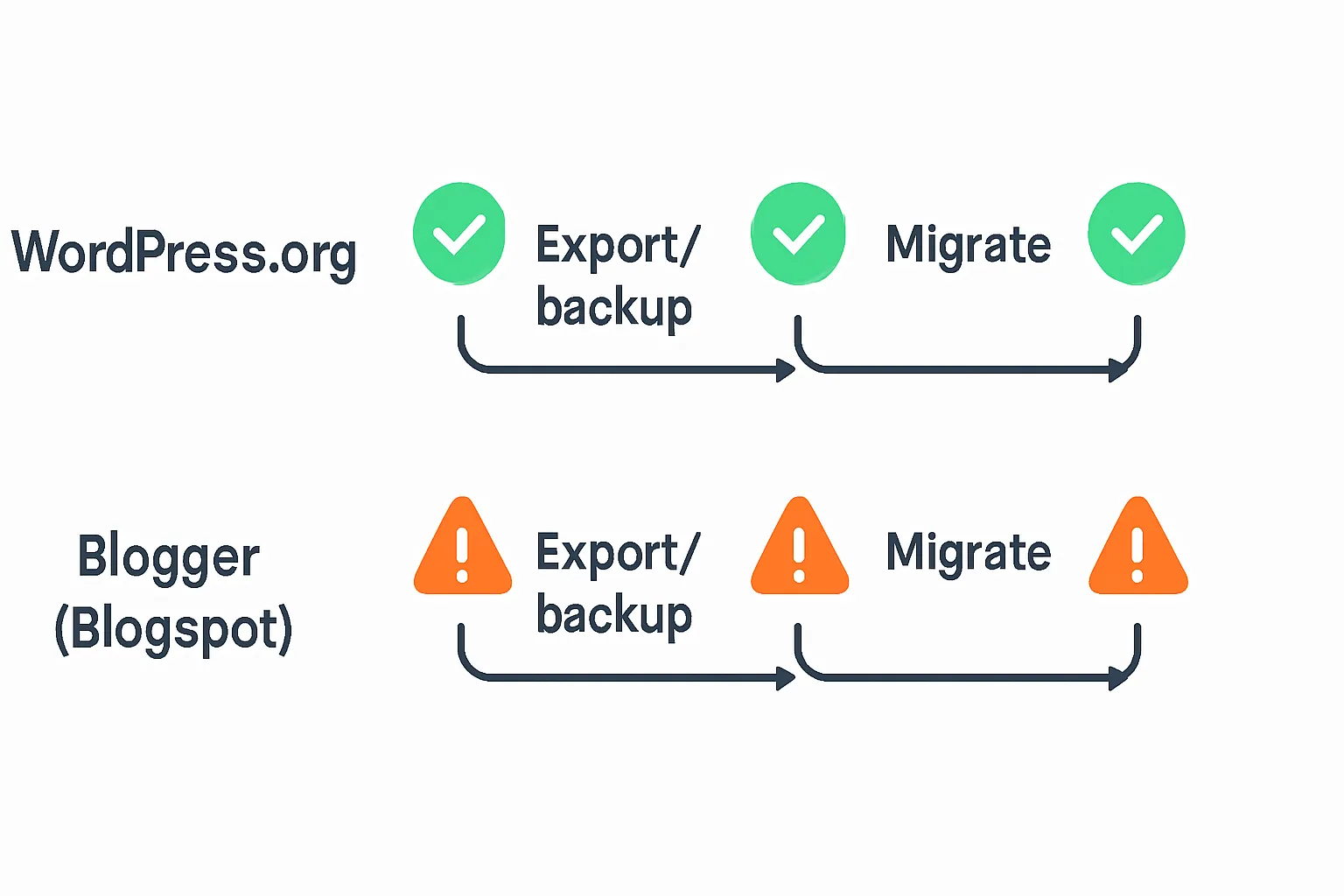
Takeaway
If long‑term autonomy and portability matter, WordPress is safer
Security, Support & Reliability: What Happens on a Bad Day?
Blogger
Security, uptime, and infrastructure handled by Google
Limited direct support; community forums and docs
WordPress.org
Your responsibility for core/theme/plugin updates, backups, firewalls
Lots of help available: host support, plugin/theme vendors, massive community
Managed WordPress hosting can automate updates, backups, and WAF for peace of mind
Practical setup
Non‑technical teams: consider managed hosting to reduce maintenance load
Pricing: What “Free” Really Costs in 2025
Blogger
$0 for platform + Blogspot subdomain and hosting
Typical add‑ons: custom domain ($10–$20/yr)
Hidden cost: limited growth and brand polish
WordPress.org
Software is free; hosting ($2–$15/mo for starters), domain ($10–$20/yr)
Optional: premium themes/plugins ($0–$200+ one‑time or yearly)
Scales with your needs; higher traffic may require better hosting
Sample starter stacks
Budget start: shared hosting + free theme + a few free plugins
Pro start: managed hosting + premium theme + key plugins (SEO, cache, forms)
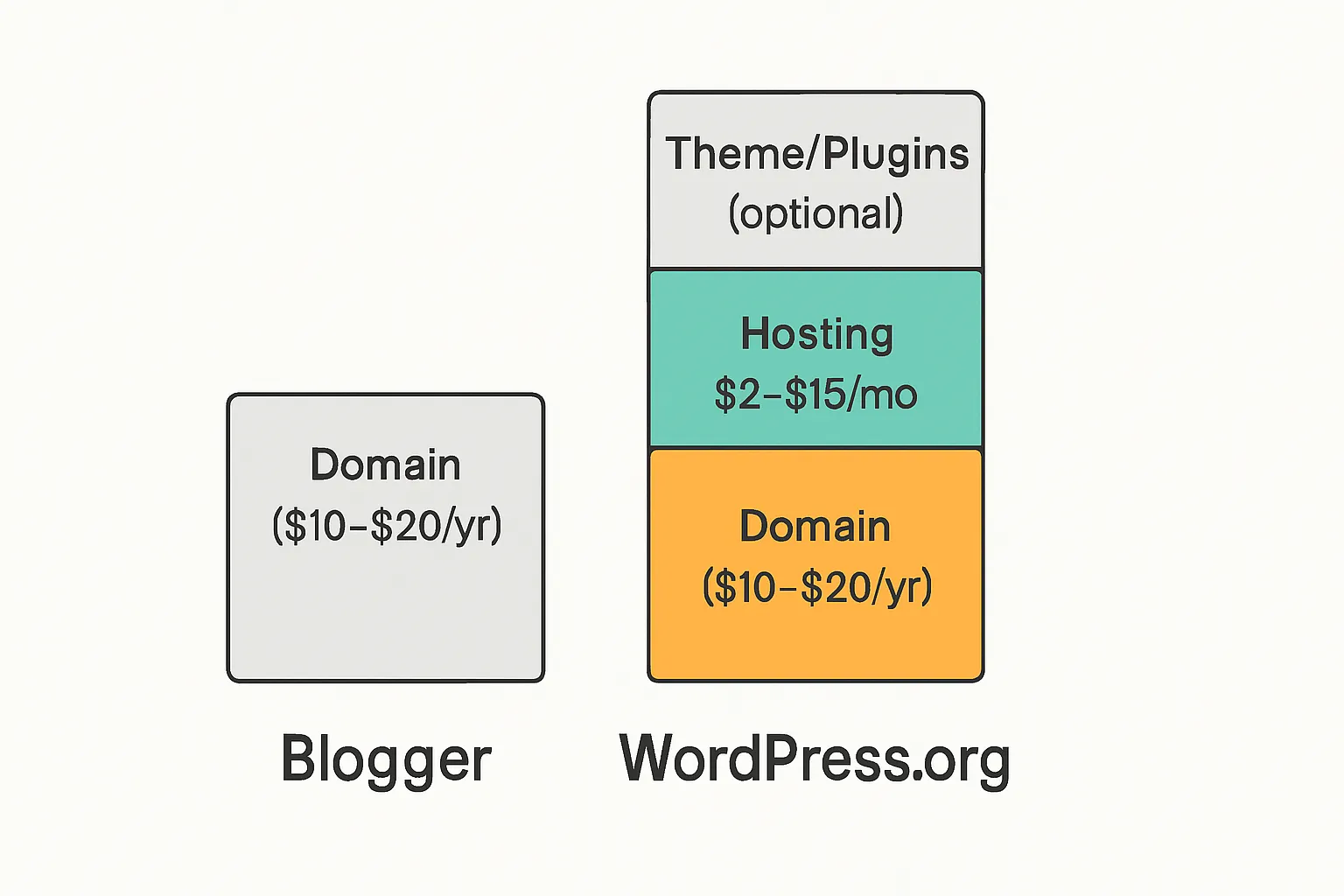
Bottom line
Blogger is cheaper up front; WordPress offers better ROI as your blog grows
Final Verdict: Which One Should You Choose? (+ a smarter third option)
Choose Blogger if
You want a free, ultra‑simple home for personal posts and don’t plan to customize or monetize much
You need to publish today and accept a Blogspot subdomain
Choose WordPress.org if
You care about SEO, design control, and monetization (affiliates, ads, memberships, ecommerce)
You want full ownership, portability, and the ability to scale
Quick decision checklist
Do you need a custom domain and brand polish now? → WordPress
Is long‑term SEO/AI search visibility critical? → WordPress
Is the fastest free start your priority? → Blogger
Where BlogBowl fits
If you’re a SaaS, startup, or growing business that wants an SEO‑optimized blog without setup effort: BlogBowl launches a hosted, blazing‑fast blog in minutes, automates content (AI), internal linking, images, and analytics - ideal when you need both speed and growth
Closing thought
Start where you are, but choose the platform that won’t limit your next stage


